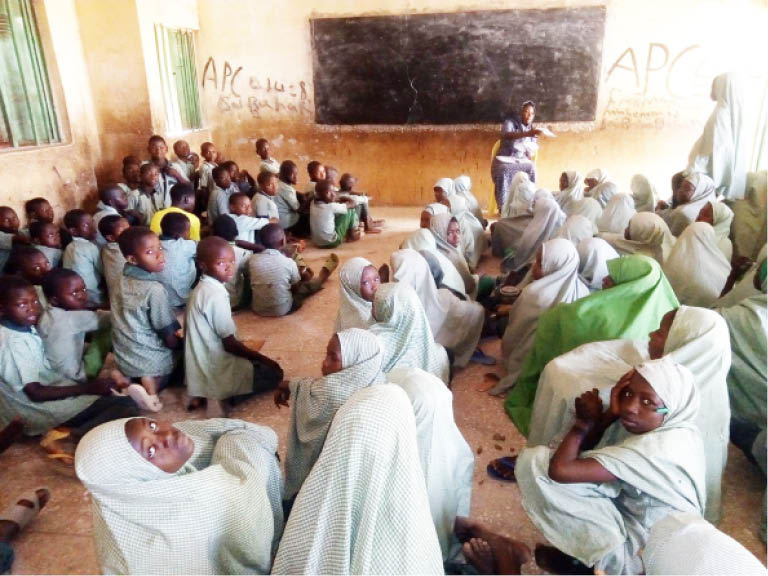Bill to provide compulsory universal basic education passes second reading
A bill to provide universal basic education to all Nigerians has passed second reading at the House of Representatives. The bill sponsored by the speaker, Femi Gbajabiamila, seeks for the amendment of some sections of the Nigerian Constitution 1999 (as amended) to make Free Compulsory Universal Basic Education a fundamental rights under the Constitution of […]

Pupils of Hammadu Primary School sitting on the floor to take lessons.
A bill to provide universal basic education to all Nigerians has passed second reading at the House of Representatives.
The bill sponsored by the speaker, Femi Gbajabiamila, seeks for the amendment of some sections of the Nigerian Constitution 1999 (as amended) to make Free Compulsory Universal Basic Education a fundamental rights under the Constitution of the Federal Republic of Nigeria.
“This step has become necessary considering various reports relating to the rate of Illiteracy in Nigeria. It is important to point out that there is already in existence the Compulsory, Free Universal Basic Education Act 2004. Ordinarily, Free Compulsory basic education is not a fundamental right under that Act,” he said.
Gbajabiamila however noted that, the Federal High Court in 2017, Justice John Tosho, in a suit filed by legal defence and assistance Projects against the AGF and Ministry of Education, held that “By the combined effect of section 18(3)(a) of the 1999 Constitution and section 2 (1) of the Compulsory, Free Universal Basic Education Act, 2004, the right to free and compulsory primary education and free junior secondary education for all qualified Nigerian citizens are enforceable rights in Nigeria.”
He said that, having regard that the Judgement is a high Court Judgment that may be overturned anytime “we as legislators and representatives of the people must take steps to give credence or constitutional backing to the judgement of the Federal High Court”.
The speaker noted that, the passage of the Bill does not prejudice the existence of the Compulsory, Free Universal Basic Education Act, 2004.
